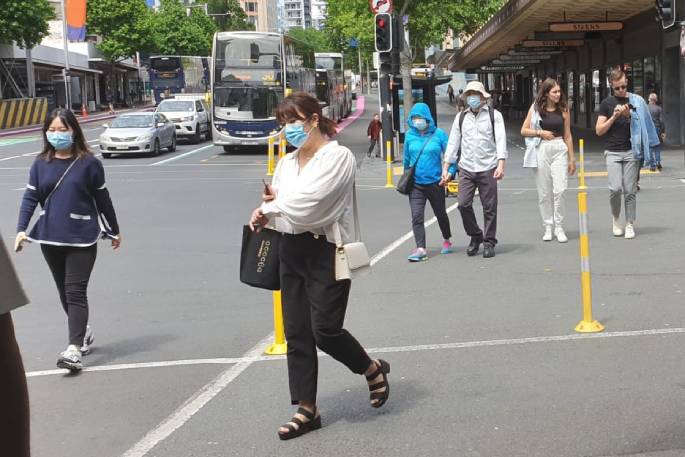New Zealand is facing a second wave of coronavirus infections as cases of the Omicron subvariant BA.5 spread around the country.
The Ministry of Health yesterday reported 4924 community cases of the virus and the deaths of 11 people with Covid-19, but the seven-day rolling average has grown to 6895, almost 2000 more than a week ago.
The BA.5 subvariant appears more transmissible and better at evading immunity than others and is expected to overtake BA.2 as the dominant strain within weeks.
University of Canterbury professor and Covid-19 modeller Michael Plank says infections could potentially hit a similar peak to the first March wave of around 20,000 cases per day.
"We can see in the genome sequencing data that this variant has been spreading much faster than the previous variant that we have, so it's quite likely that this will lead to a significant second wave in the weeks ahead.
"It's certainly possible that we could have a second wave that's comparable in size to the first wave back in March, at least in terms of the number of cases."
Plank says the number of infections among people over the age of 70 are already at an all-time high, as immunity from vaccination and first wave infections waned.
"Quite concerningly we've seen the biggest increase in older age groups, which is of course where the biggest risk of severe illness is."
While it was difficult to predict how long a second wave might last, Plank warned it could be a month or two.
University of Otago epidemiologist professor Michael Baker earlier told RNZ the surge in infections suggested the next Omicron wave was coming.
"We've had a couple of months of declining case numbers and a plateau across the country, but this is a very marked increase in numbers just in the last week - so I think that's very convincing."
A second wave is likely to put hospitals under enormous strain as they deal with Covid-19 and flu patients, along with people suffering from other respiratory illnesses.
A second booster - or fourth dose - is now available for everyone over 50, as well as health, aged-care and disability workers over the age of 30.
Covid-19 Response Minister Ayesha Verrall last week said the country would remain at the orange traffic light setting.



0 comments
Leave a Comment
You must be logged in to make a comment.